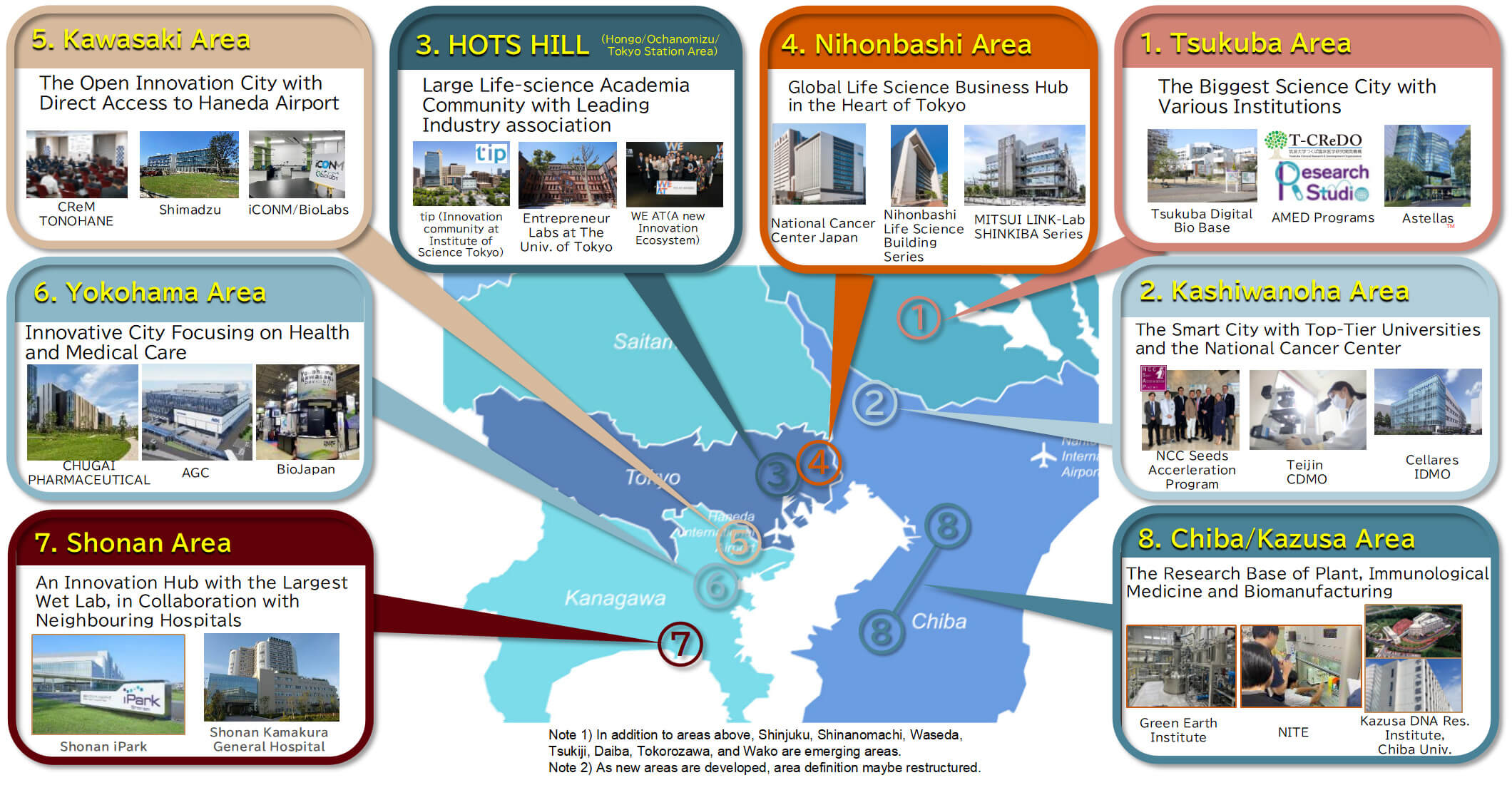JBA formulates a rolling three-year plan to identify and promote key priorities.
To realize a bioeconomy-based society, the 2023-2025 plan focuses on implementing Japan's national bioeconomy strategy in collaboration with various stakeholders. A particular emphasis is placed on fostering biocommunities and bioclusters. JBA is actively pursuing the following actions.
In line with Japan's national bioeconomy strategy, JBA launched a community-building initiative in the Tokyo metropolitan area in 2021. In 2022, these efforts were officially recognized through certification by the Cabinet Office as a Global Biocommunity.
This initiative, known as the Greater Tokyo Biocommunity (GTB), brings together a wide range of stakeholders--including industry, local governments, academia, research institutions, financial organizations, and related entities.
JBA serves as the secretariat of GTB, acting as a central hub that connects these diverse stakeholders while planning and coordinating GTB's activities. GTB also collaborates with other bio-communities across Japan, including the Global Biocommunity in the Kansai region (Osaka and Kobe), to promote nationwide innovation and synergy in the bioindustry.
1.Tsukuba Area
2.Kashiwanoha Area
3.Hongo-Ochanomizu-Tokyo Station Area ("HOTS HILL")
4.Nihonbashi Area
5.Kawasaki Area
6.Yokohama Area
7.Shonan Area
8.Chiba/Kazusa Area

For more information, please visit: https://gtb.jba.or.jp/en/
JBA maintains active partnerships with bioindustry organizations around the globe.
JBA organizes BioJapan, the world's longest-running international biotechnology event, held every October in Yokohama. It is hosted alongside Regenerative Medicine JAPAN and healthTECH JAPAN, creating a comprehensive platform for innovation in life sciences.
In 2026, BioJapan will celebrate its 40th anniversary. Over the years, JBA has worked tirelessly to promote open innovation through this event. Today, BioJapan is recognized globally as one of the three major biotech partnering events, alongside the BIO International Convention and BIO-Europe.



For more information, please visit: https://jcd-expo.jp/en/
1. Social Implementation Working Group
Established in 2024 to accelerate the social implementation of R&D results in the field of bio-manufacturing.
2. Research and Development Working Group
- Fermentation and Metabolism
- Alcohol and Biomass
- New Resource Bioconversion
- Plant Biotechnology
- Food Bio Plus Study Group
- Health Care Study Group
- Functional Foods Study Group
- Bioengineering Study Group
- Drug Discovery Modality Study Group
As part of its 30th anniversary initiatives, JBA established the "Bioindustry Award" and the "Bioindustry Research Award" in 2017. The Bioindustry Award recognizes achievements that are expected to have a significant impact on the development of the fields of bioscience, biotechnology, and bioindustry. The Bioindustry Research Award honors promising young researchers engaged in research aimed at applications related to bioscience and biotechnology.
At COP15 (the 15th Conference of the Parties to the Convention on Biological Diversity) held in December 2022, the parties agreed to:
- Ensure fair and equitable benefit-sharing from the use of DSI,
- Establish a multilateral mechanism (MLM) including a global fund,
- Develop specific benefit-sharing mechanisms via an Open-Ended Working Group, and
- Evaluate the mechanism's effectiveness at COP18 in 2028.
In October 2024, COP16 was convened in Cali, Colombia, where JBA participated on-site after releasing a position paper reflecting the views of Japan's bioindustry.
At COP16, negotiators agreed on:
- A contribution scheme based on company size (threshold) and sector classification,
- Direct distributions to countries,
- The structure and governance of the benefit-sharing fund.
Currently, thresholds and contribution rates are considered provisional and are scheduled to be finalized at COP17 (2026). Given the potential implications for not only industry but also society at large, JBA is committed to mitigating impacts by:
- Conducting sector-specific surveys,
- Gathering stakeholder opinions,
- Monitoring international discussions, and
- Providing policy recommendations to the Japanese government in support of future negotiations.
